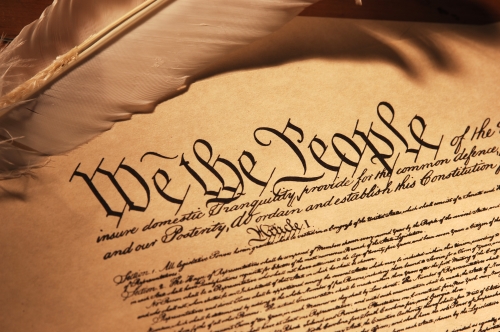“The Director…has for more than twenty years had the authority to direct that any Board case be decided by a single member of the TTAB…[including the director] himself as the sole member of the TTAB rehearing panel, thereby allowing him to review…decisions.”
 On September 1, the United States Court of Appeals for the Federal Circuit (CAFC) affirmed the Trademark Trial and Appeal Board’s (TTAB’s) cancellation of a trademark owned by Sweet 16 Musical Properties (Sweet 16), concluding that there is no Appointments Clause issue with the TTAB.
On September 1, the United States Court of Appeals for the Federal Circuit (CAFC) affirmed the Trademark Trial and Appeal Board’s (TTAB’s) cancellation of a trademark owned by Sweet 16 Musical Properties (Sweet 16), concluding that there is no Appointments Clause issue with the TTAB.
In 1980, Georg Schiedmayer, the owner of a German piano making company named Schiedmayer and Soehne, stopped making pianos under that name and formed a new company called Schiedmayer GmbH & Co. KG. When Georg Schiedmayer died in 1992, his widow, Elianne Schiedmayer, became the sole owner of the company. In 1995, she founded a new company that became appellee, Schiedmayer Celesta, which continues to operate globally using the “Schiedmayer” mark.
Meanwhile, in Los Angeles, California, Sweet 16 acquired the assets of Piano Factory Group (Piano Factory) in 2006 and started selling pianos. The owner of those companies, Glenn Treibitz, believed the “Schiedmayer” mark had been abandoned for pianos and decided to file a trademark application and begin using the mark on “stencil pianos.” A “stencil piano,” is a trade name for cheap “no name” pianos that some retailers will buy and then affix labels of high-end sounding companies to in order to give the perception that they are of a higher quality. The U.S. Patent and Trademark Office (USPTO) issued a registration for the mark on the principal register in November 2007.
Petition for Cancellation
In 2015, Schiedmayer Celesta filed a cancellation petition with the TTAB, seeking the cancellation of Sweet 16’s registration for the “Schiedmayer” mark. The cancellation petition alleged that the mark falsely suggested a connection with Schiedmayer Celesta, in violation of section 2(a) of the Lanham Act, 15. U.S.C. §1052(a). Applying the four-part test for a false association bar to registration articulated in University of Notre Dame Du Lac, the TTAB ruled in Schiedmayer Celesta’s favor, canceling the mark filed by Sweet 16. University of Notre Dame Du Lac v. J.C. Gourmet Food Imports Co., 703 F.2d 1372 (Fed. Cir. 1983).
Appeal
On appeal, Sweet 16 raised a constitutional challenge to the composition of the TTAB panel that decided their case. Sweet 16 argued that the administrative trademark judges (ATJs) who sat on the panel were appointed in violation of the Appointments Clause of Article II of the U.S. Constitution, and therefore the TTAB’s decision must be vacated. The acting Director of the USPTO, as intervenor, asserted that the ATJs were appointed lawfully.
No Arthrex Issue
The CAFC noted that the parties’ briefs in this case were filed before the Supreme Court’s Arthrex decision. United States v. Arthrex, Inc., 141 S. Ct. 1970 (2021). In Arthrex, the Court analyzed the statutory scheme governing inter partes review (IPR) proceedings at the Patent Trial and Appeal Board (PTAB). Due to the authority conferred to the PTAB’s administrative patent judges (APJs) by those statutes, the Court concluded that the APJs were principal officers of the United States. Accordingly, the Court held that, without a modification of the APJs’ authority, the APJs could not constitutionally perform their duties unless appointed by the President and confirmed by the Senate. Sweet 16 contended that in view of the Arthrex decision, the ATJs must also be considered “principal officers” of the United States. Therefore, because the ATJs are not appointed by the President and confirmed by the Senate, they had been appointed unconstitutionally.
In Arthrex, the Court noted that the Director of the USPTO, a Presidential appointee, had administrative oversight over the APJs by way of fixing their pay rate, deciding whether to institute IPR, selecting APJs to serve on IPRs, promulgating regulations governing IPR, issuing prospective guidance, and designating decisions as “precedential.” However, the Director lacked the authority to issue decisions on patentability, which left neither the Director nor any other Executive Branch official able to supervise the work of APJs. This lack of supervision is what created the Appointments Clause issue.
The Court took particular issue with two sections of the Patent Act in Arthrex: 35 U.S.C. § 6(c), and 35 U.S.C. § 318(b). Section 6(c) requires that IPR proceedings be heard by a panel of at least three members and stated that only the PTAB may grant rehearings of PTAB decisions. Section 318(b) requires the Director to comply with PTAB decisions. Both of these statutes were ruled to be unconstitutional because they made the APJs unaccountable to any Executive Branch official. Therefore, they were struck down, making the APJs “inferior officers” accountable to the Director. Near the resolution of the Arthrex opinion, the Court stated that this change “aligns the PTAB with the other adjudicative body in the PTO, the Trademark Trial and Appeal Board.” 141 S. Ct. 1970, 1987 (2021). The CAFC noted this shows the Supreme Court believed “the current trademark statues plainly render the ATJs inferior officers, making their appointments lawful.
Before the Trademark Modernization Act of 2020
A slight complication here, the CAFC noted, was that the current case was decided by the Board prior to the enactment of the Trademark Modernization Act of 2020. Therefore, Sweet 16 contended that in light of the statutory structure in place in 2019, when this case was decided, the ATJs enjoyed the status of principal officers at the time, which made their appointments unconstitutional. However, the CAFC was unconvinced, noting the lack of trademark statutes analogous to the patent statutes struck down in Arthrex. The CAFC recognized the broad statutory authority given to the Director by Section 41 of the Lanham Act, 15 U.S.C. §1123, did not require a minimum of a three member panel for decisions nor that the Director is barred from reviewing ATJ’s decisions.
Sweet 16 further argued that the enactment of the 2020 legislation indicated that prior to 2020, the Director lacked the authority explicitly defined in the legislation, and that it was improper to give that statute retroactive effect. However, the CAFC did not adopt this position. The House Report on the legislation confirmed that it was “understood that this authority already exists in the trademark context.”
Additionally, Sweet 16 argued that the 2020 legislation did not solve the Appointments Clause issue because it did not create an explicit right for the Director to order a rehearing. The CAFC rejected this argument for two reasons. First, because the language of the 2020 legislation explicitly recognized the Director had this authority. Second, because the Appointments Clause was intended to prevent unappointed officials from wielding too much power, not to guarantee litigants procedural rights to a rehearing. Therefore, it is irrelevant whether the Director has implemented a procedure for a rehearing; what matters is that he has the authority to do so.
The CAFC conceded that prior to the Intellectual Property and Communications Omnibus Reform Act of 1999, the Lanham Act required the TTAB to sit in panels of at least three, as was the case for the PTAB pre-Arthrex. However, since that time, the Director has had discretion regarding the size and composition of TTAB panels. Accordingly, the CAFC concluded that, unlike the PTAB, pre-Arthrex, “the Director… has for more than twenty years had the authority to direct that any Board case be decided by a single member of the TTAB…[including the Director] himself as the sole member of the TTAB rehearing panel, thereby allowing him to review…decisions.”
Apart from the constitutional issue, the CAFC did not find any of Sweet 16’s arguments on the merits persuasive. At the core of the case, said the court, Sweet 16 falsely labeled its pianos with the Schiedmayer name, which has been “long associated with a German manufacturer of high-end keyboard instruments,” in a clear attempt to take advantage of the reputation of Schiedmayer products. “That is the essence of ‘falsely suggest[ing] a connection’ with another entity under section 2(a) of the Lanham Act,” said the court. Accordingly, the decision of the TTAB to cancel Sweet 16’s registration was upheld.
Image Source: Deposit Photos
Author: jamesgroup
Image ID: 13456269

![[IPWatchdog Logo]](https://ipwatchdog.com/wp-content/themes/IPWatchdog%20-%202023/assets/images/temp/logo-small@2x.png)

![[Advertisement]](https://ipwatchdog.com/wp-content/uploads/2024/04/UnitedLex-May-2-2024-sidebar-700x500-1.jpg)
![[Advertisement]](https://ipwatchdog.com/wp-content/uploads/2024/04/Artificial-Intelligence-2024-REPLAY-sidebar-700x500-corrected.jpg)
![[Advertisement]](https://ipwatchdog.com/wp-content/uploads/2024/04/Patent-Litigation-Masters-2024-sidebar-700x500-1.jpg)

![[Advertisement]](https://ipwatchdog.com/wp-content/uploads/2021/12/WEBINAR-336-x-280-px.png)
![[Advertisement]](https://ipwatchdog.com/wp-content/uploads/2021/12/2021-Patent-Practice-on-Demand-recorded-Feb-2021-336-x-280.jpg)
![[Advertisement]](https://ipwatchdog.com/wp-content/uploads/2021/12/Ad-4-The-Invent-Patent-System™.png)






Join the Discussion
No comments yet.